Tibor Molnár
Nacimiento : 1921-07-26, Zagyvapálfalva, Hungary [now in Salgótarján, Hungary]
Muerte : 1982-11-24

Gáspár Dániel
A group of landless Hungarian peasants accept work as migrant-laborers on a farm in northern Germany where the wages are good, and the wives and family are allowed to accompany them. Though it is in the midst of World War II, they are relatively well-off. However, they glimpse the treatment accorded to POWs and others who are not so gently treated, and at the conclusion of the year's harvest, they choose to return to Hungary and are quickly swept up in the tides of war. This film is part of a series of films by award-winning, well-respected director Zoltan Fabri who devoted much time and effort chronicling the struggle against fascism.

Feature film version of the 1971 series.
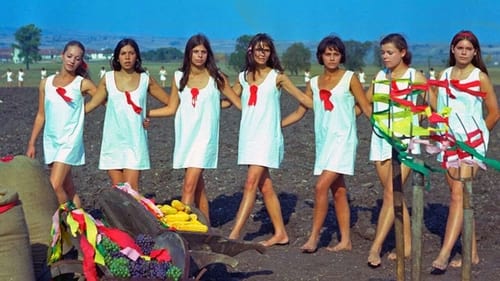
Lovas Imre, socialist
La rebelión de los campesinos húngaros de fines del siglo XIX contra los terratenientes que los explotan, es narrada por Miklós Jancsó con un ritmo musical, que da a la obra la impronta de un ritual. Las primeras tentativas de la revuelta fallan, pero el espíritu revolucionario pronto volverá a estallar... (FILMAFFINITY)

Kerék András
An aspiring film student is denied a scholarship to the state-funded university when his father is thrown in jail. The man had stopped a train in order to facilitate the union between two old friends. The son then takes a job as a land surveyor and meets a Greek man who works towards the collective benefits of the peasants. The man is killed in a peasant uprising prompted by a bureaucratic boondoggle. The surveyor looks after the man's widow as his emerging political and social awareness leads him take a stand against government injustice. Another incident, in which gypsies are rounded up by state hygiene workers, further galvanizes the man's beliefs. He photographs the incident, and his work allows him to be accepted into the school from which he was previously denied admission.
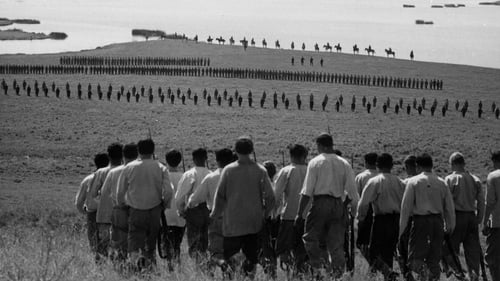
Andras
Año 1917, en la frontera rusa durante la Primera Guerra Mundial. Los Blancos zaristas se enfrentan a los Rojos bolcheviques, que son apoyados por voluntarios húngaros. En la inmensa planicie se produce la caza del hombre, la ejecución de prisioneros, los caballos en desbandada... (FILMAFFINITY).

Széles István
The changing and turbulent history of Hungary is seen through the eyes of three men over a 30-year period in this somber drama. The three recall the highlights of their lives in flashbacks as they reminisce in the mid 1960s. The venerable trio begin their story in the 1930s, through World War II, and the decade beyond the communist invasion of 1956.

Kerekes (Antal Pager) believes he is wanted by the police when his friends play a practical joke in this unusual comedy drama. He returns to his hometown where he was accused of turning a Jewish druggist and the druggist's wife over to the Nazis. With his friends following him, Kerekes tries to find out what became of the couple after they were deported. After being subjected to a mock trial by his friends -- and found guilty -- Kerekes becomes despondent and attempts to kill himself. Flashbacks and hallucinations are employed to tell this story that occurs during the Eichmann trial. Both the film and Antal Pager gained some unwanted publicity when a Variety article from April 23rd, 1967 accused Pager of being a Nazi collaborator for his role in an anti-Semitic film during World War II.

Börtönparancsnok
Andras Kovacs' film, considered one of the most important Hungarian films of the 1960s, centers around four men who await trial for their involvement in the massacre of several thousand Jewish and Serbian people of Novi Sad in 1942. Each denies any responsibility, claiming that they were only following orders. The film is significant for its willingness to address the subject of Hungary's role in WWII, which was taboo at the time of the its release.

Kabai
Film basado en los hechos rurales acontecidos en 1848 después del levantamiento nacional liderado por Kossuth en Hungría. (FILMAFFINITY)

Feature film version of the 1964 tv series.
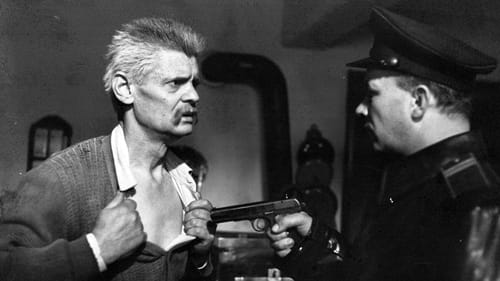
Máthé
A crusading newspaper reporter covers the Soviet invasion of Hungary in 1956. Initially critical of the communists, the feature later espouses the virtues of the social changes implemented since the invasion. The title refers to the period of time the reporter spent interviewing witnesses to the invasion.

Hazatérõ férfi
Primavera de 1945. Son los últimos días de la batalla de la liberación de Hungría. Jóska, el protagonista, tiene 17 años. Como miembro de una joven organización de estudiantes desertores es llevado a Alemania, pero se escapa.

Coach
Terpinkó, the bragging man of muscle likes womanising linked with betting: conquering is a great fun for him. He bet one to a hundred on his new boss, Éva. But the wife of the engineer handles all his tricks with annoying benevolence. Terpinkó falls in love with her and therefore he cannot stand her not returning his feelings.

Zámbó

Fõigazgató
Bene, tired of the professional battles of engineers and trying to escape a ship-wrecked marriage, asks to be transferred to the country. The gravest problem of the sandy region in Nagyalföld (Great Hungarian Plain) is the shortage of water. The tireless director of the local state farm asks for Bene's support, but the disillusioned man refuses him.

Uncle Imre
The film is a ballad about the dwellers of a block-of-flats in Angyalföld.

Sándor is loved by his wife, but they cannot have children. He is already tired of his marriage.
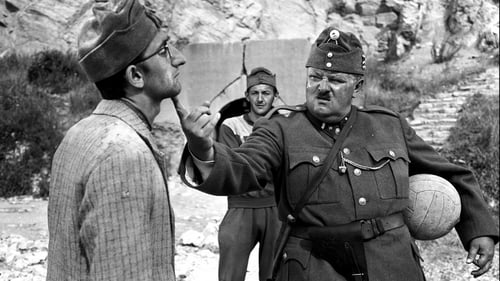
Rácz
To celebrate Hitler's birthday, a soccer match is organized between the Germans and prisoners of war.

Marci
During World War I, an ancient feud divides the industrial area in the county of Nógrád. The workers of the steal factory start a strike, but the miners do not support their cause. Sanyi from the steal factory and Ilonka from the mining community fall in love with each other, but can only meet secretly. When the boy dances with the girl in the pub of the miners, he is recognised and knocked down.

Csurik
Gráci has been recently released from a reformatory school. His old gang would like to involve him in a new action, but he hesitates. His past record is bad enough already, and he would not like to get into new trouble.

Short drama-documentary showing the first day in England of a Hungarian refugee.

This easy-to-take Hungarian drama is also known as Two Wishes. The prinicipal characters are a pair of juvenile delinquents, who may still be redeemable. The sullen duo is befriended by a kindly police inspector, who takes it upon himself to straighten out the boys. What follows cannot be termed surprsingly or innovative, though it is immensely satisfying. Of interest is the fact that a Communist-bloc film would admit to a delinquency problem in the so-called Worker's Paradise. Ket Vallomas was the Hungarian entry in the 1957 Cannes Film Festival.
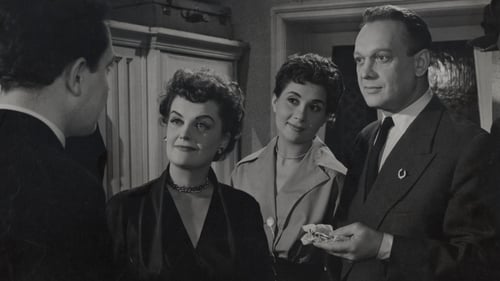
Tuba Sanyi
Varsa engineer receives the Kossuth award for his excellent work. His career once began at the family enterprise of his wife, so the woman invites her relatives for a dinner party.

Bónis
Sztankó János, the freshly appointed director of a company that builds agricultural factories meets his former classmate, Palócz. Palócz is just released from the prison where he got on made-up charges. Sztankó suddenly decides to employ the engineer since he wants to show up spectacular, quick results.

Ferenc Bakos
Nagy István, the formerly poor peasant boy returns to his native village as a teacher. His conviction is that the abyss between rich and poor can be diminished by good will. The rich Böröcz Horváth Klári returns his love, and also Böröcz Horváth is willing to help the poorest family, the Bakos. Bakos Jóska, who was sent to serve the tough Böröcz Horváth as a payment, dies of an infected wound and the people in the village hold the teacher liable as well. Nagy István realises, that the abyss cannot be ceased, what is more, it is impassable. He breaks up with his fiancée and stands by the side of the poor.

Gáspár Tóth
The young worker Tóth Gáspár gets into hospital with stomachache. During the night his state is worsening. The doctor on duty, Málnási does not attend the patient despite the call of the nurse, for he spends the night with nurse Margó.

János Busa
Imre, secretary of the illegal communist party arrives in Budapest secretly in 1942, in order to start the newspaper of the party in the fight against war. Not even his own mother can see him.

Gazsó Bertalan
At Christmas Eve in 1944 the runaway Pintér and Gozsó get through the Soviet blockade around Budapest. Pintér intends to hide in a flat abandoned by his own relatives, but he finds his relatives called the Turnovszkys, who are hiding the Jewish Jutka as well. Love unfolds between Zoltán and Jutka.

Venice Film Festival 1954

József Irínyi
March 15, 1848; the revolution breaks out in the town of Pest. Yet at café Pilvax, in among he revolutionary youth, there is the informer of the imperial court as well. Hearing the news of the attack led by Jellasics, the inhabitants of the villages pour into the national army, and Hajdú Gyurka also escapes from his landlord. Petőfi is there at the camp of the revolutionaries, raising them to enthusiasm with his poetry.
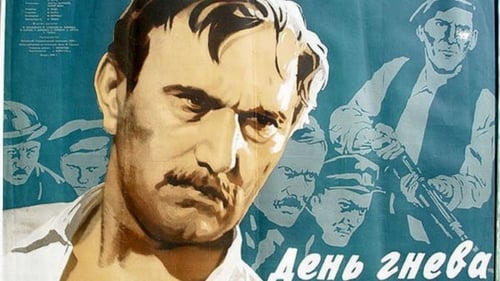
Bognár
In May 1919 in a small rural town beside Salgótarján the local high society wants to get the power back with the leadership of dr. Máriáss, exploiting the outside attack launched against the Republic of Councils.
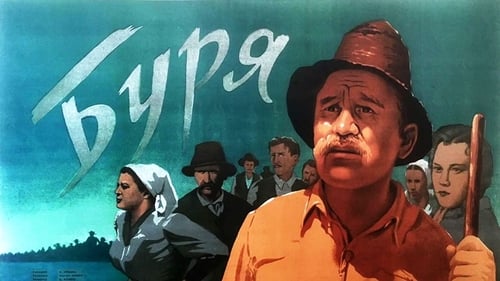
Göndöcs Gyula párttitkár
Vörös Hajnal (Red Dawn), a co-operative is the venue of skylarking, while the storm destroys the wheat which is to be harvested soon. Árendás, a middle-peasant, voices severe accusations against members of the co-operative: out of negligence, they failed to keep the ditches clean. It is always the soft option they seem to favour, while the necessity of properly taking care of the farmlands is long-forgotten. Members of the co-operative and the village people are deeply divided.
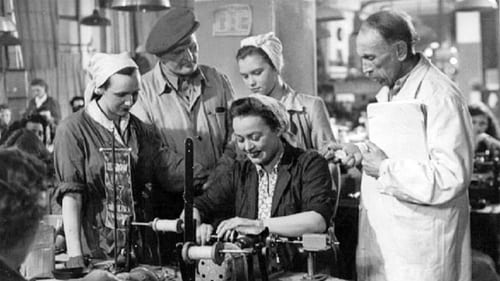
Bikov, Soviet stahanovist

pseudo-Ludas Matyi

A female worker in Socialist Hungary gains the acceptance of her male colleagues.

1h 35min | 21 October 1948 (Hungary)

Jani Tarcali
In 1905 Hungary, a young village woman has just undergone a marriage to the spoiled son of a man to whom her father is indebted, in order that the debt be cancelled, only to be spirited away by her true love, a young peasant, by whom she soon becomes pregnant. Together they attempt to find a way to buy up her father's debt and also pay for a divorce from her husband, against various odds.

























